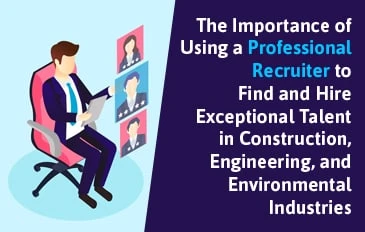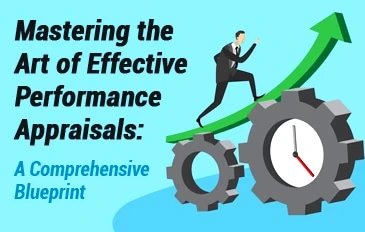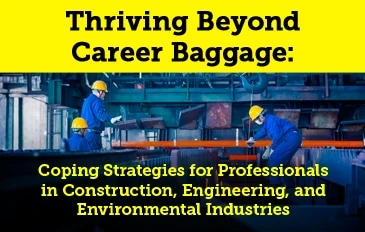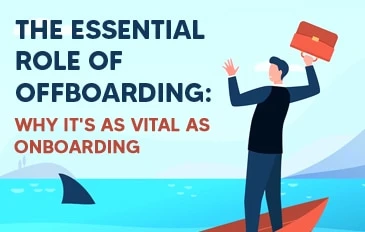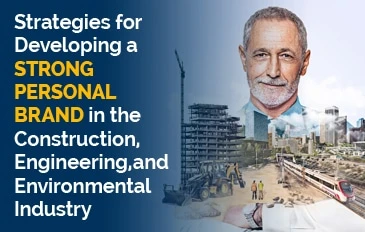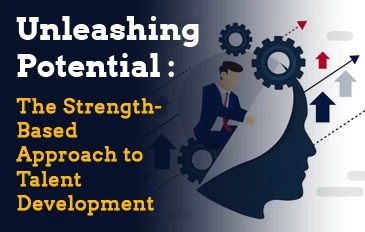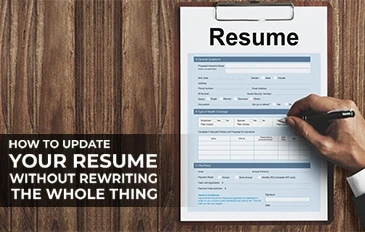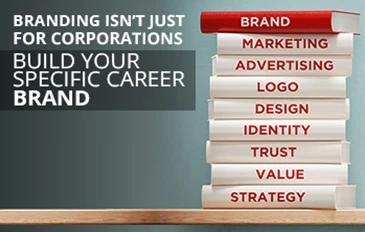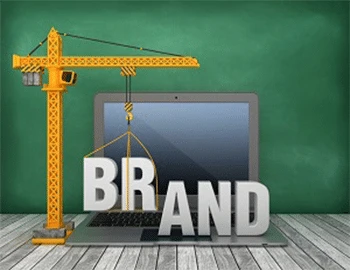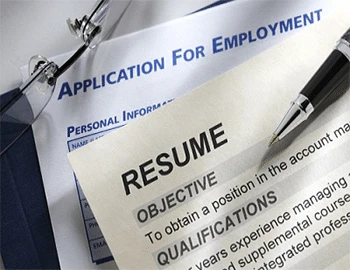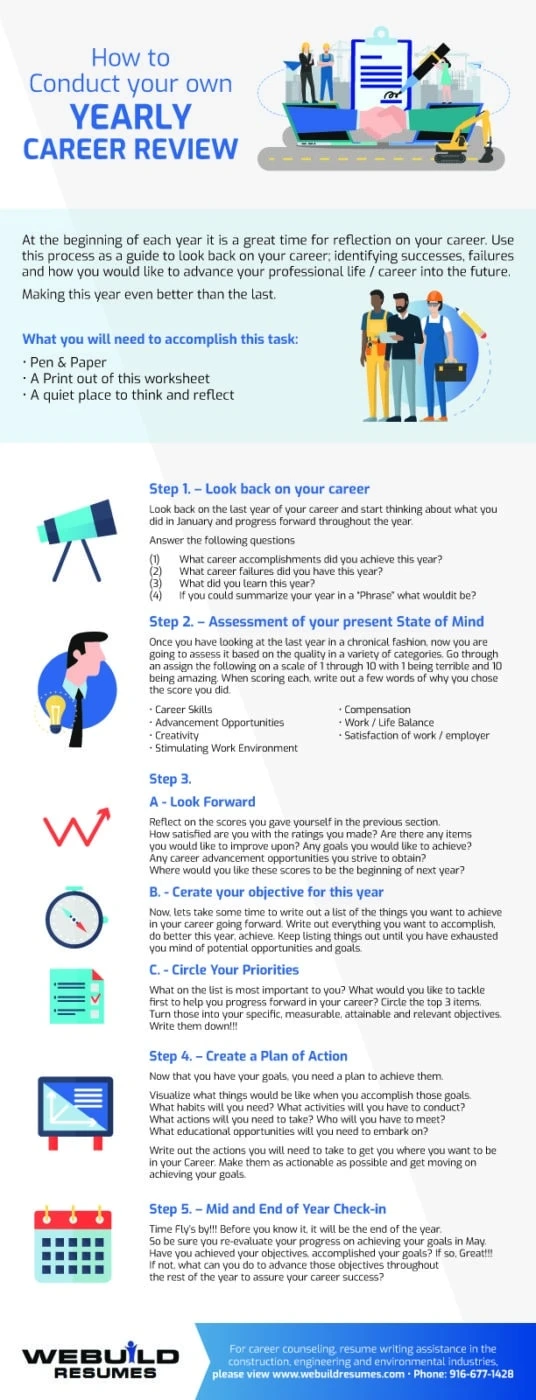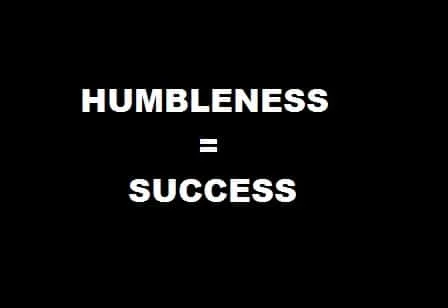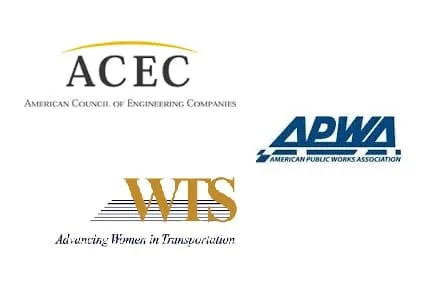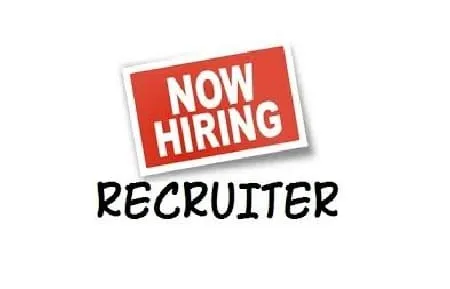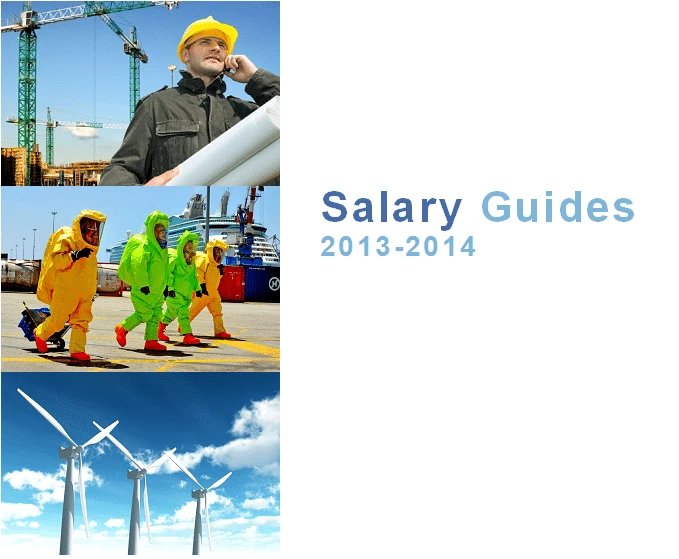Michael DeSafey | Executive Recruiter and HR Professional
Empowering Infrastructure Engineering: Success Stories with Engineering Staffing Agencies
Engineering staffing agencies have played a pivotal role in connecting companies, from budding startups to established Fortune 500 giants, with the skilled professionals essential for infrastructure development throughout the last 50 years. Here are a few inspiring success stories of organizations that harnessed the expertise of engineering staffing agencies to achieve their goals, elevate their projects, and leave a lasting impact on the infrastructure engineering landscape.
The Golden Gate Bridge: A Marvel of Civil Engineering
The iconic Golden Gate Bridge in San Francisco is a testament to human engineering prowess. However, undertaking such a colossal project required a skilled workforce with expertise in structural engineering, bridge design, and seismic engineering. The organization responsible for this remarkable achievement, thanks in part to engineering staffing agencies, assembled a team of engineers and specialists who meticulously planned and executed the construction of this iconic suspension bridge.
The Panama Canal Expansion: Engineering Marvel in Waterway Infrastructure
Expanding the Panama Canal was an engineering feat of global significance. To undertake this massive project, skilled engineers specializing in maritime infrastructure, lock system design, and dredging were required. Engineering staffing agencies played a vital role in identifying and recruiting top talent from around the world. These professionals contributed to the successful expansion of the Panama Canal, facilitating increased global trade and maritime transportation.
The Hoover Dam: Harnessing Hydroelectric Power
The Hoover Dam, an engineering marvel that harnesses hydroelectric power, required an exceptional team of civil engineers, geotechnical experts, and dam construction specialists. Engineering staffing agencies were instrumental in helping the organization behind this project assemble a workforce with the precise skills needed to manage the complexities of dam construction and hydroelectric power generation.
High-Speed Rail Projects: Transforming Transportation Infrastructure
The development of high-speed rail networks represents a significant advancement in transportation infrastructure. These projects necessitate engineers specialized in rail system design, electrification, and tunneling. Engineering staffing agencies have been critical in connecting rail project developers with professionals possessing the expertise to design, construct, and operate high-speed rail systems, revolutionizing transportation in regions around the world.
Renewable Energy: Wind and Solar Farms
The proliferation of wind and solar farms as sources of renewable energy has been a driving force behind infrastructure development. These projects demand engineers well-versed in renewable energy technologies, grid integration, and sustainable infrastructure design. Engineering staffing agencies have been integral in facilitating the recruitment of engineers who can design and implement efficient wind and solar energy systems, contributing to a more sustainable future.
Smart Cities: Advancing Urban Infrastructure
Smart cities aim to enhance urban living through innovative technologies and infrastructure. Engineers specializing in urban planning, traffic management, and IoT infrastructure are indispensable for these projects. Engineering staffing agencies have aided in the recruitment of professionals who can design and implement the digital infrastructure that underpins smart cities, improving urban efficiency and quality of life.
Water Treatment Plants: Ensuring Safe Drinking Water
Developing water treatment plants to provide safe drinking water to communities requires a skilled workforce in civil engineering, environmental engineering, and water treatment processes. Engineering staffing agencies have played a pivotal role in connecting organizations with engineers who can design and operate water treatment facilities, ensuring the availability of clean and safe drinking water.
Airport Expansions: Enhancing Air Travel Infrastructure
Expanding and modernizing airports to accommodate growing air travel demands is a complex undertaking. Civil engineers, aviation experts, and airport infrastructure specialists are essential for these projects. Engineering staffing agencies have assisted in sourcing talent with expertise in airport design, runway construction, and terminal development, contributing to improved air travel experiences.
Conclusion: A Legacy of Infrastructure Excellence
These success stories in infrastructure engineering underscore the critical role that engineering staffing agencies play in connecting organizations with the specialized talent needed to realize ambitious infrastructure projects. From iconic bridges and dams to sustainable energy solutions and smart cities, these partnerships empower organizations to bring their infrastructure visions to life, enhancing communities and leaving a legacy of engineering excellence. As the world continues to evolve, engineering staffing agencies remain essential allies in the ongoing quest to build a better and more interconnected future through infrastructure engineering.
Webuild Staffing Agency is a leading executive search and staffing agency dedicated to the construction, engineering and environmental industries. To learn more please visit: www.webuildstaffing.com
Engineering Staffing Agencies: Supporting Industry Growth and Professional Skills Advancement
The engineering and construction industries are dynamic and ever-evolving, with projects ranging from infrastructure development to cutting-edge technology implementations. To fuel this growth and innovation, a steady supply of skilled professionals is essential. Engineering staffing agencies have emerged as crucial partners in these sectors, playing a pivotal role in bridging the talent gap and supporting industry expansion and success of the engineering and construction marketplaces.
Engineering Staffing Agencies: Meeting Industry-Specific Demands
The engineering and construction sectors have unique demands for skilled professionals with specialized expertise. Staffing agencies specialize in identifying, recruiting, and placing candidates with industry-specific skills and qualifications. Whether it’s civil engineers for infrastructure projects, mechanical engineers for manufacturing, or construction managers for large-scale building initiatives, staffing agencies excel in matching the right talent to the right job, ensuring that projects are staffed with professionals who possess the necessary technical skills and knowledge.
Access to a Diverse Talent Pool
One of the significant advantages staffing agencies bring to the engineering and construction industries is access to a diverse and extensive talent pool. These agencies have robust networks and databases of candidates, including both active job seekers and passive candidates who may not be actively looking for new opportunities but are open to the right offer. This broad reach ensures that employers have access to a wide range of professionals, from entry-level engineers to seasoned project managers.
Flexibility in Workforce Management
The engineering and construction sectors often require flexibility in workforce management. Projects may have fluctuating demands, and staffing agencies can provide solutions that align with these needs. Whether it’s temporary workers for short-term projects, contract-to-hire arrangements, or permanent placements, staffing agencies offer a range of staffing options that allow companies to adapt to changing project requirements without the long-term commitments associated with traditional hiring.
Timely Responses to Industry Trends
The engineering and construction industries are subject to rapid technological advancements and regulatory changes. Staffing agencies are well-positioned to respond to these trends swiftly. They stay informed about emerging technologies, industry regulations, and market shifts, ensuring that the candidates they recommend are up-to-date with the latest developments. This proactive approach enables employers to remain competitive and innovative in their projects.
Navigating Skill Shortages
Skill shortages are a common challenge in the engineering and construction industries, particularly in specialized areas such as renewable energy, artificial intelligence, and sustainable building practices. Staffing agencies actively address these shortages by identifying and sourcing candidates with niche skills. They tap into their extensive networks to connect employers with professionals who possess the expertise required to overcome skill gaps and drive industry growth.
Reducing Hiring Costs and Time-to-Fill
The hiring process can be time-consuming and costly for companies in the engineering and construction sectors. Staffing agencies streamline this process by handling candidate sourcing, pre-screening, and even conducting initial interviews. This reduces the time-to-fill vacant positions, ensuring that projects can commence promptly. Moreover, by outsourcing parts of the recruitment process, companies can save on recruitment advertising, administrative, and training costs.
Enhancing Safety and Compliance
Safety and compliance are paramount in engineering and construction projects. Staffing agencies prioritize safety by ensuring that candidates possess the necessary certifications, licenses, and qualifications to work safely on job sites. They also assist clients in navigating complex regulatory requirements, helping companies maintain compliance with industry-specific regulations and standards.
Diversity and Inclusion Initiatives
Promoting diversity and inclusion is a priority for many engineering and construction companies. Staffing agencies actively support these initiatives by presenting diverse candidate pools to clients. This helps companies create more inclusive work environments that reflect the diverse communities they serve. Diverse teams bring a range of perspectives and innovative solutions to projects, ultimately contributing to industry growth.
Scaling Operations for Expansion
As companies in the engineering and construction sectors expand their operations, staffing agencies play a pivotal role in scaling their workforce. Whether it’s opening new offices, taking on larger projects, or entering new markets, staffing agencies can quickly provide the necessary talent to support growth initiatives. This scalability allows companies to seize opportunities and expand their market presence efficiently.
Fostering Long-Term Partnerships
The relationship between staffing agencies and clients extends beyond single placements. Staffing agencies aim to foster long-term partnerships by consistently delivering top-notch candidates and responsive service. They collaborate closely with clients to understand their evolving staffing needs, providing strategic workforce planning to support long-term growth objectives.
In Conclusion: Driving Industry Advancements
In the fast-paced and competitive landscapes of engineering and construction, staffing agencies play a pivotal role in driving industry growth and innovation. Their ability to identify top talent, respond to industry trends, and address skill shortages contributes to the success of projects and the advancement of these vital sectors. By partnering with staffing agencies, companies in engineering and construction can access a diverse and skilled workforce that empowers them to tackle complex projects, meet evolving demands, and shape the future of these industries.
Webuild Staffing Agency is a leading executive search and staffing agency dedicated to the construction, engineering and environmental industries. To learn more please visit: www.webuildstaffing.com
The Evolution of Engineering Recruitment: Modern Strategies by Staffing Agencies
As technology advances and industries grow, so do the demands for specialized engineering skills. A Engineering Staffing agency has played a crucial role in adapting to these changes, employing modern strategies to connect engineering professionals with the right opportunities. The evolution of engineering recruitment and cutting-edge strategies employed by staffing agencies today are building the framework for future search endeavors.
The Traditional Approach to Engineering Recruitment
Historically, engineering recruitment was a labor-intensive process characterized by manual resume screening, job fairs, and word-of-mouth referrals. Staffing agencies primarily relied on databases of candidates and personal networks to fill job vacancies. While this approach yielded some success, it had limitations in reaching a broader and more diverse talent pool.
The Role of Technology in Modern Recruitment
The digital age has transformed the landscape of engineering recruitment. Staffing agencies now leverage advanced technologies to streamline the hiring process and connect with candidates more efficiently. Some of the key technological advancements shaping modern recruitment strategies include:
1. Applicant Tracking Systems (ATS)
ATS software allows staffing agencies to manage and track candidate applications efficiently. It streamlines resume parsing, candidate ranking, and interview scheduling, reducing administrative burdens and improving the overall candidate experience.
2. AI-Powered Candidate Matching
Artificial intelligence and machine learning algorithms are used to match candidates with job openings more accurately. These algorithms analyze candidate profiles, skills, and experiences to identify the best fit for specific roles, saving time and resources.
3. Online Job Portals
Staffing agencies utilize online job portals and platforms to reach a broader audience of engineering professionals. These platforms enable agencies to post job openings, collect applications, and engage with candidates from around the world.
4. Video Interviews
Video interviews have become a staple in modern recruitment. They allow agencies to conduct preliminary assessments of candidates regardless of geographical locations, enabling a more inclusive and efficient process.
5. Social Media and Networking
Social media platforms like LinkedIn provide valuable tools for networking and candidate sourcing. Staffing agencies can connect with potential candidates, showcase job opportunities, and build strong professional networks.
6. Mobile Recruitment
Mobile recruitment apps and websites make it easier for candidates to search for jobs and apply on the go. Agencies optimize their recruitment processes for mobile devices to cater to tech-savvy candidates.
Modern Strategies Employed by Staffing Agencies:
1.Targeted Job Marketing
Staffing agencies employ targeted job marketing strategies to reach engineering professionals with specialized skills. They use data analytics to identify the most effective platforms and channels for promoting job openings. This ensures that job advertisements reach the right audience.
2. Skills Assessment Platforms
Many staffing agencies use skills assessment platforms to evaluate candidates’ technical skills and proficiency. These platforms enable candidates to showcase their abilities through practical tests and challenges, providing a more accurate assessment of their qualifications.
3. Industry-Specific Expertise
Staffing agencies specializing in engineering often have industry-specific experts on their teams. These experts possess in-depth knowledge of the engineering field, enabling them to understand clients’ needs and match candidates accordingly.
4. Cultural Fit Assessment
Cultural fit is a critical factor in recruitment. Staffing agencies assess candidates not only for technical skills but also for their compatibility with the company culture and values. This ensures that candidates integrate well into the work environment.
5. Continuous Professional Development
Engineering is an evolving field, and continuous learning is essential. Staffing agencies support candidates’ professional development by offering resources, training opportunities, and guidance on staying up-to-date with industry trends.
6. Post-Placement Support
The relationship between a staffing agency and a placed candidate doesn’t end with placement. Agencies provide post-placement support to ensure candidates integrate smoothly into their new roles. This includes ongoing communication to address any concerns or challenges.
7. Compliance and Safety Standards
Engineering projects often come with strict compliance and safety standards. Staffing agencies are well-versed in managing compliance, ensuring that candidates possess the required certifications, licenses, and qualifications. They also assist clients in navigating complex regulatory requirements and safety protocols.
8. Diversity and Inclusion
Promoting diversity and inclusion is a priority for modern staffing agencies. They strive to present diverse candidate pools to clients, fostering inclusive workplaces and helping clients meet diversity goals.
9. Candidate Pipelining
Anticipating future talent needs is a key strategy for staffing agencies. They engage in proactive candidate pipelining by identifying and nurturing relationships with potential candidates even before specific job openings exist. This approach allows agencies to respond quickly to client needs.
10. Predictive Analytics for Workforce Planning
Predictive analytics tools help staffing agencies forecast future trends in the engineering job market. They analyze data to identify high-demand skills and emerging technologies. This proactive approach helps agencies and clients stay ahead of staffing challenges.
Conclusion: The Future of Engineering Recruitment
The evolution of engineering recruitment has brought about significant changes in the strategies employed by staffing agencies. The integration of technology, data-driven insights, and industry-specific expertise has allowed agencies to connect engineering professionals with the right opportunities more effectively. As engineering continues to advance, staffing agencies will play a pivotal role in shaping the future of the industry by facilitating the seamless flow of talent and innovation.
Webuild Staffing Agency is a leading executive search and staffing agency dedicated to the construction, engineering and environmental industries. To learn more please visit: www.webuildstaffing.com
Navigating the Cost of Resume Writing Services in Construction and Engineering Industries
When working in the construction and engineering industries your resume serves as the cornerstone of your professional narrative. As professionals seek to elevate their careers, the question arises: What should be the cost of resume writing services in the construction and engineering industries?
There are many factors that influence resume writing service prices specifically within these dynamic fields, ensuring you make an informed investment in your career.
Understanding the Unique Factors Effecting Cost of Resume Writing Services in Construction and Engineering Industries
- Specialized Experience and Expertise: The construction and engineering industries demand a unique set of skills and experiences. Resume writers with specialized knowledge in these fields often command higher fees. These seasoned professionals understand the intricacies of construction and engineering, ensuring your resume aligns with the expectations of hiring managers in these industries.
- Technical Proficiency Showcase: Technical proficiency is a linchpin in construction and engineering resumes. Conveying this effectively requires writers with a deep understanding of industry-specific jargon and requirements. A resume service that specializes in these technical nuances is essential to ensure your expertise is clearly communicated.
- Emphasis on Project Management and Achievements: Project management and tangible achievements are vital in construction and engineering resumes. Skilled resume writers can articulate your achievements using quantifiable metrics, showcasing successful project outcomes that grab the attention of hiring managers in these industries.
- Addressing Industry-Specific Challenges: Construction and engineering professionals often face unique challenges, from navigating complex regulations to adapting to evolving technologies. A resume service that can address these challenges, weaving them into your narrative as valuable experiences, is crucial for standing out in these industries.
- Tailoring for Different Roles: Construction and engineering encompass various roles, and tailoring your resume for each position is essential. Resume writers with industry-specific expertise can adapt your resume for different positions, emphasizing the skills and experiences most relevant to each role.
- Navigating the ATS Maze in Technical Jargon: The Applicant Tracking Systems (ATS) used in construction and engineering firms require resumes optimized for technical jargon. Professional resume writers specializing in these industries are well-versed in ATS best practices, ensuring your resume passes through automated systems effectively.
- Industry-Specific Resume Samples and Templates: Resume writers with a focus on construction and engineering often have access to industry-specific resources, providing invaluable resume samples and templates. Leveraging these resources ensures your resume adheres to industry standards and showcases professionalism expected in these fields.
- Balancing Art and Science in Resume Writing: Crafting a compelling resume for construction and engineering is a delicate balance between art and science. Professional resume writers in these industries bring a blend of creativity and strategic thinking to ensure effective storytelling that resonates with employers.
Breaking Down Cost Ranges for Construction and Engineering Resume Writing Services
- Low-End Range:
At the lower end of the spectrum, construction and engineering resume services may charge between $100 to $250. While budget-friendly, these services may offer basic templates and might lack the industry-specific expertise needed to make your resume stand out in these competitive fields.
- Mid-Range:
In the mid-range, services typically charge between $250 to $600. These services strike a balance between affordability and quality, providing more personalized approaches, experienced writers, and additional services such as cover letter writing, essential for construction and engineering professionals.
- High-End Range:
At the higher end, premium construction and engineering resume services may charge $600 or more. These services often include extensive consultations, personalized attention from seasoned professionals, and a range of supplementary features. The investment may be justified for those seeking top-tier expertise and comprehensive support in these specialized fields.
Making an Informed Decision in Relation to Resume Writing Services Specialized in Construction and Engineering Industries.
- Evaluate Industry-Specific Needs and Budget
Before choosing a resume writing service, carefully evaluate your industry-specific needs and budget. Construction and engineering professionals require resumes tailored to their unique challenges, making expertise a priority. Consider the level of customization, additional services required, and your overall career goals.
- Research Reviews and Testimonials in the Industry
Research is crucial when selecting a resume writing service for construction and engineering roles. Look for reviews, testimonials, and samples of their work within these industries. A reputable service should have a track record of success and positive feedback from satisfied clients in similar fields.
- Request Samples and Consultations with an Industry Focus
Reputable construction and engineering resume services often offer free samples or consultations. Take advantage of these opportunities to assess the quality of their work and determine if their approach aligns with the specialized needs of these industries.
- Beware of Unrealistic Claims in the Construction and Engineering Fields
Exercise caution when encountering resume writing services that make unrealistic claims specific to construction and engineering roles. While a professionally written resume can significantly enhance your chances, no service can guarantee employment outcomes in these highly competitive fields.
- Consider the Long-Term Value in Construction and Engineering
View the cost of a resume writing service as an investment in your construction and engineering career. A well-crafted resume can open doors to opportunities, potentially leading to advancements and increased earning potential. Consider the long-term value specific to your industry, rather than focusing solely on the upfront cost.
The impact of a well-crafted resume is unparalleled. Understanding the unique factors that influence the cost of resume writing services in these industries, exploring different price ranges, and making an informed decision aligned with your career goals are crucial steps in leveraging these services effectively. Remember, your resume is not just a document; it’s the blueprint for your success in the specialized world of construction and engineering.
Webuild Resumes is a leading resume writing services firm dedicated to the construction, engineering and environmental industries. To learn more about resume writing and professional branding services, please visit: www.webuildresumes.com
Finding the Right Fit: How to Screen an Engineer for Project Success
The success of a project often hinges on assembling the right team of professionals. Whether you’re a project manager, an engineering lead, or part of a hiring committee, the process of screening engineering job candidates is crucial to ensure that they are the perfect fit for the project at hand. Let’s walk you through the steps to effectively screen an engineer for project success on specific projects, helping you make informed decisions that will drive project success.
Define Project Requirements
Before you begin screening candidates, it’s essential to have a clear understanding of the project’s requirements. Work closely with project stakeholders to create a comprehensive list of skills, qualifications, and expertise needed for success. Consider technical skills, project-specific knowledge, and any industry certifications that may be required.
Craft Targeted Job Postings
Based on the project requirements, craft job postings that are specific and detailed. Clearly communicate the skills and qualifications candidates must possess to be considered for the role. Tailor the job postings to attract candidates with the right expertise for the project.
Resume and Application Review
Review candidates’ resumes and applications carefully. Pay close attention to their work experience, educational background, and certifications. Look for candidates who have relevant experience in similar projects or industries. Ensure that their qualifications align with the project’s specific requirements.
Conduct Initial Screening Interviews
After the resume review, conduct initial screening interviews. These can be phone or video interviews to assess candidates’ technical skills, project-specific knowledge, and overall fit for the project. Ask questions that delve into their past experiences and how they can contribute to the project’s success.
Assess Problem-Solving Abilities
Engineering projects often require creative problem-solving. Include technical assessments or problem-solving exercises during the screening process to evaluate candidates’ ability to tackle challenges relevant to the project. This can provide valuable insights into their practical skills.
Evaluate Communication Skills
Effective communication is vital for project success. Assess candidates’ communication skills, both written and verbal. They should be able to explain complex engineering concepts clearly and collaborate effectively with team members and stakeholders.
Check References
Contact candidates’ references to validate their qualifications and past performance. Ask about their experience working on similar projects, their teamwork and communication skills, and their ability to meet project deadlines and objectives.
Consider Cultural Fit
Assess candidates’ cultural fit with the project team and organization. Ensure that they align with the company’s values and work well within the project’s work environment. Cultural fit can significantly impact team dynamics and project outcomes.
Review Portfolios and Past Projects
Candidates should provide portfolios or examples of their past projects. Review these materials to gain a deeper understanding of their work and accomplishments. Look for projects that demonstrate their ability to excel in roles similar to the one they’re being considered for.
Evaluate Soft Skills
In addition to technical skills, evaluate candidates’ soft skills, such as leadership, adaptability, and problem-solving. These skills play a crucial role in project management and team dynamics.
Assess Industry-Specific Knowledge
For projects in specialized industries, such as aerospace or renewable energy, assess candidates’ industry-specific knowledge and experience. They should be well-versed in industry regulations, standards, and best practices.
Collaborate with Cross-Functional Teams
If the project involves multiple disciplines or departments, collaborate with cross-functional teams during the screening process. This ensures that candidates have the necessary skills and expertise to work effectively with diverse team members.
Use Behavioral Interviews
Behavioral interviews focus on candidates’ past behavior and experiences. Ask candidates to provide examples of how they have handled specific situations or challenges in previous projects. This approach can reveal their problem-solving abilities and decision-making skills.
Simulate Project Scenarios
Simulate real project scenarios or challenges and ask candidates how they would approach them. This can provide valuable insights into their problem-solving methods, decision-making processes, and their ability to adapt to project-specific situations.
Continuous Evaluation and Feedback
Throughout the screening process, continuously evaluate candidates and gather feedback from interviewers and team members. Discuss the strengths and weaknesses of each candidate and assess their alignment with the project’s requirements.
In Conclusion: Building the Dream Engineering Team
Screening engineering job candidates for specific projects is a meticulous and multifaceted process. It requires a deep understanding of project requirements, rigorous assessment methods, and a keen eye for qualifications and cultural fit. By following these steps and customizing the screening process to fit your project’s needs, you can assemble the dream engineering team that will drive your project to success. Remember that an effective screening process not only benefits the project but also contributes to the professional growth and development of the engineering candidates you select.
Webuild Staffing Agency is a leading executive search and staffing agency dedicated to the construction, engineering and environmental industries. To learn more please visit: www.webuildstaffing.com
Unveiling the Impact of Professional Resume Writers for Construction and Engineering Professionals
Crafting a resume for use in the construction or engineering industries, that not only captures your technical expertise but also resonates with potential employers is a crucial endeavor. Many professionals in these industries grapple with the question: Do the impact of professional resume writers really help? Today, we’ll dissect the unique challenges faced by construction and engineering professionals in the job market and unveil the ways in which professional resume writers can be a game-changer in propelling careers forward.
Navigating the Construction and Engineering Landscape:
The construction and engineering sectors demand a unique set of skills and experiences. From project management and technical proficiency to adherence to safety standards, professionals in these fields need resumes that not only showcase their capabilities but also align with the expectations of hiring managers in the industry.
Professional resume writers, with their industry-specific knowledge, can effectively navigate the nuances of construction and engineering resumes. They understand the language, key metrics, and industry trends that make a candidate stand out in this competitive job market.
Highlighting Technical Proficiency:
For construction and engineering professionals, technical proficiency is often the linchpin of their expertise. Conveying this proficiency concisely and effectively in a resume can be challenging. Professional resume writers excel at translating technical jargon into impactful, easily understandable language that resonates with both technical and non-technical audiences.
Whether you’re a civil engineer, structural designer, or construction project manager, a professional resume writer can illuminate your technical prowess in a way that captures the attention of hiring managers and showcases your unique value.
Emphasizing Project Management and Achievements:
The construction and engineering industries thrive on successful project management and tangible achievements. Your resume should not merely list job responsibilities but should vividly portray the impact you’ve had on projects, budgets, and timelines.
Professional resume writers can effectively articulate your achievements, using quantifiable metrics to showcase successful project outcomes. Whether you’ve managed multimillion-dollar projects or implemented cost-saving measures, a well-crafted resume can highlight these accomplishments, making you a compelling candidate.
Addressing Industry-Specific Challenges:
Construction and engineering professionals often face unique challenges such as navigating complex regulations, meeting stringent safety standards, and adapting to evolving technologies. A professional resume writer can address these challenges head-on, weaving them into your narrative as valuable experiences that set you apart in the industry.
By showcasing your ability to navigate regulatory landscapes, ensure safety compliance, and stay abreast of technological advancements, your resume becomes a powerful tool for demonstrating your adaptability and expertise.
Tailoring Resumes for Different Roles:
The construction and engineering sectors encompass a wide range of roles, from civil engineers and project managers to electrical designers and construction supervisors. Tailoring your resume for each specific role is essential to stand out in diverse job applications.
Professional resume writers understand the importance of customization. They can adapt your resume for different positions, emphasizing the skills and experiences most relevant to each role. This tailored approach significantly increases your chances of landing interviews for positions that align with your expertise.
Navigating the ATS Maze:
Many construction and engineering firms utilize Applicant Tracking Systems (ATS) to streamline the hiring process. These systems filter resumes based on keywords and specific criteria, making it essential to optimize your resume for ATS compatibility.
Professional resume writers are well-versed in ATS best practices. They can ensure that your resume contains the right keywords and formatting to successfully pass through these automated systems, increasing the likelihood of your application reaching the hands of human decision-makers.
Industry-Specific Resume Samples and Templates:
Professional resume writers often have access to a wealth of industry-specific resume samples and templates. These resources are invaluable for construction and engineering professionals looking to understand the conventions and formatting preferences within their industries.
Leveraging these samples, a professional resume writer can create a visually appealing and content-rich resume that adheres to industry standards, ensuring that your application reflects the professionalism expected in construction and engineering roles.
Combining Art and Science in Resume Writing:
Crafting a compelling resume for construction and engineering professionals is a delicate balance between art and science. It involves presenting technical details in an engaging manner while adhering to the principles of effective resume writing.
Professional resume writers bring a blend of creativity and strategic thinking to this process. They understand the importance of storytelling in resumes, transforming a list of skills and experiences into a narrative that captivates employers and demonstrates your suitability for the role.
Overall, the impact of a well-crafted resume cannot be overstated. Professional resume writers, armed with industry-specific knowledge, can elevate your application from a mere listing of qualifications to a powerful marketing tool that showcases your unique value.
Whether you’re a civil engineer, construction manager, or structural designer, enlisting the help of a professional resume writer can provide you with a distinct advantage in your job search. It’s an investment in your career, a strategic move that can open doors to opportunities and set the stage for success in the dynamic and ever-evolving fields of construction and engineering.
Webuild Resumes is a leading resume writing services firm dedicated to the construction, engineering and environmental industries. To learn more about resume writing and professional branding services, please visit: www.webuildresumes.com
Innovations in Engineering Staffing: Staying Ahead in a Competitive Market
The engineering industry is in a constant state of evolution, marked by groundbreaking innovations and technological advancements. In such a dynamic landscape, the demand for top engineering talent has never been higher. To thrive in this competitive market, both job seekers and employers must embrace innovative approaches to engineering staffing. In this comprehensive blog post, we will explore the latest innovations in engineering staffing and provide strategies on how to stay ahead in this fiercely competitive industry.
Understanding the Evolution of Engineering Staffing
Engineering staffing has come a long way from traditional hiring practices. In the past, employers relied heavily on resumes and interviews to evaluate candidates. However, this approach had limitations in assessing a candidate’s practical skills and overall fit for the job.
Today, innovations in engineering staffing have revolutionized the way candidates are sourced, evaluated, and matched with employers. These innovations leverage technology, data analytics, and a deep understanding of the engineering landscape to create a more efficient and effective recruitment process.
Innovations in Engineering Staffing
-
Artificial Intelligence (AI) and Machine Learning
AI and machine learning have transformed engineering staffing by streamlining candidate selection and matching processes. These technologies can analyze vast datasets to identify suitable candidates based on skills, experiences, and even cultural fit. This leads to more accurate and efficient candidate matching, saving both time and resources for employers and staffing agencies.
-
Skills Assessment Platforms
Innovative skills assessment platforms allow candidates to showcase their technical abilities through practical tests and challenges. These platforms provide a more comprehensive view of a candidate’s skills than traditional interviews or resumes. Employers can assess candidates’ problem-solving abilities, coding skills, or engineering design capabilities directly, ensuring a better match for job requirements.
-
Video Interviews and Virtual Reality
Video interviews and virtual reality simulations have become invaluable tools in engineering staffing. These technologies enable employers to conduct remote interviews and practical assessments, making it easier to connect with top talent from anywhere in the world. Candidates can demonstrate their skills and expertise, providing employers with a more immersive view of their abilities.
-
Predictive Analytics
Predictive analytics use historical data and machine learning algorithms to forecast future trends in the engineering job market. Staffing agencies and employers can use this data to make informed decisions about hiring, salary negotiations, and workforce planning. This proactive approach helps organizations stay ahead of staffing challenges.
-
Digital Recruitment Marketing
Employers are increasingly using digital recruitment marketing strategies to attract engineering talent. These strategies include creating compelling employer branding, using social media for talent acquisition, and optimizing job postings for search engines. Digital recruitment marketing ensures that job opportunities reach a broader and more diverse candidate pool.
Strategies to Stay Ahead in Engineering Staffing
-
Embrace Technological Advancements
To stay ahead in engineering staffing, both job seekers and employers must embrace technological advancements. Job seekers should familiarize themselves with skills assessment platforms and virtual interviews to showcase their abilities effectively. Employers and staffing agencies should invest in AI-driven candidate matching systems and predictive analytics to identify top talent.
-
Continuous Skills Development
The engineering field is dynamic, with new technologies and methodologies emerging regularly. Job seekers should prioritize continuous skills development to remain competitive. Employers can offer training and development programs to enhance the skills of their existing workforce and attract top talent.
-
Adapt to Remote Work Trends
The COVID-19 pandemic accelerated the adoption of remote work in the engineering industry. Job seekers and employers should be open to remote work arrangements and the use of virtual collaboration tools. This flexibility widens the talent pool and ensures access to the best candidates, regardless of geographical location.
-
Foster Diversity and Inclusion
Innovation thrives in diverse and inclusive environments. Employers should prioritize diversity and inclusion in their hiring practices, recognizing that a diverse workforce brings a variety of perspectives and approaches to problem-solving. Staffing agencies can play a crucial role in promoting diversity by presenting diverse candidate pools to employers.
-
Leverage Data-Driven Insights
Data-driven insights from predictive analytics can provide a competitive edge in staffing. Employers should use these insights to make informed decisions about hiring strategies and workforce planning. Job seekers can leverage data to identify high-demand skills and tailor their career paths accordingly.
-
Build a Strong Online Presence
Job seekers should build a strong online presence through professional networking platforms like LinkedIn. Employers should invest in digital recruitment marketing strategies to attract passive candidates. A compelling online presence ensures that both job seekers and employers are visible and accessible in the competitive engineering staffing market.
-
Collaborate with Specialized Staffing Agencies
Specialized engineering staffing agencies have an in-depth understanding of the industry’s evolving landscape. Collaborating with these agencies provides access to their expertise, network, and innovative recruitment tools. They can connect job seekers with tailored opportunities and help employers find the perfect match for their engineering positions.
Conclusion: Thriving in the Evolving Engineering Staffing Landscape
Innovations in engineering staffing are reshaping how job seekers and employers connect in a fiercely competitive market. Embracing technologies like AI, skills assessment platforms, and virtual interviews can streamline the recruitment process. Continuous skills development, adaptability to remote work, and a commitment to diversity and inclusion are essential strategies for success.
By leveraging data-driven insights, building a strong online presence, and collaborating with specialized staffing agencies, both job seekers and employers can navigate the evolving engineering staffing landscape with confidence. In doing so, they can stay ahead, find the right opportunities or candidates, and contribute to the ongoing innovation and growth of the engineering industry.
Webuild Staffing Agency is a leading executive search and staffing agency dedicated to the construction, engineering and environmental industries. To learn more please visit: www.webuildstaffing.com


